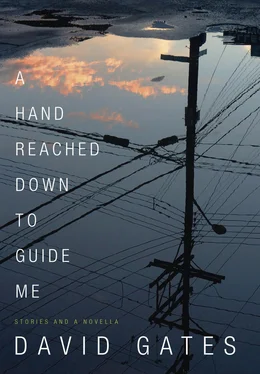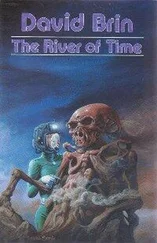She was temping at the place he worked, filling in for somebody’s assistant. Carl at this point was sort of not living at home anymore, big troubles in Our Marriage (Elaine’s formulation), staying with people, carrying his laptop and a duffel bag with clothes and DVDs. What was weird, he didn’t feel weird. This was thanks to the Paxil, which he was now getting through two doctors at two drugstores, because the one doctor had said 40 milligrams was “rather a lot.” And he was using again on top of it, but not big-time, and mostly to help him write: he’d been posting stuff about 42nd Street on what was really a very serious website.
any dickhead can see that dorothy brock (bebe daniels) is the same person as peggy sawyer (ruby keeler), but the scrim of gender may prevent said dickhead from discerning that julian marsh (warner baxter) is also mutatis mutandis a projection of the “sweet” sawyer’s nut-cutting inner self, the very name suggesting she’d “saw off” your “peg” to “get a leg up,” it being no accident that brock’s “broken” (note further pun) leg is sawyer’s big “break.”
He told the temp with the rings in her ear that there were all too few outlaws on the seventeenth floor, and said Albany was their shared shame. Then she was bold enough to show up at the Christmas party when she’d only worked there a week. He said could he get her a drink—he was on like number three—and she said, “So how much of an outlaw are you ?” He held up his left hand, worked his wedding band off and said, “Observe me closely.” He pinched it between thumb and forefinger, showed her both sides, put it in his mouth and swallowed. It scraped going down, but no worse than swallowing, say, a hard candy. And it would, in theory, be recoverable. He chased it with a last swallow, put his glass down and pulled his cheeks open with his forefingers. She looked in his glass, then looked at him. “How did you do that? Let me see your hands.”
Anyhow, you’ll never guess what happened: they ended up using most of the shit themselves. They pretty much stayed in her parents’ bed, watching cable, DVDs on Carl’s laptop and a video called Barely 18 that her father kept duct-taped up inside his radial saw. And Monday Night Football , which is how they figured out it was now Monday, or had been. Carl called his supervisor’s voice mail and said he had the flu. This Kerri—he’d briefly thought the i was a turn-on—called whoever’s voice mail it was and said she had food poisoning. Carl pointed out how stupid this was because she’d have to come up with something else tomorrow. And she said, “It would’ve been nice if you’d said that before.”
They’d gotten like two of their eight hundred dollars back when they had this fight —literally a fight, where she was hitting him and he hurt her wrists trying to hold her and she told him, “Get the fuck out, just get the fuck out.” She’d dug it that it took him forever to come—the Paxil plus the other shit made an orgasm just too high to climb up to—and then she stopped digging it. “I don’t like you, I don’t know you.” She hit first, remember that. He grabbed her wrists with both hands, found he didn’t have a third hand to hit her with, then tried to get both her wrists in one hand to free up the other, and she broke loose and hit again, “Get out get out,” in the middle of the night, middle of the afternoon, actually.
So he got in his car and made it onto the main drag, just barely, where he pulled into some non-Dunkin’ donut place, like an indie donut, guided the car between yellow lines and closed his eyes: it looked like all these flash cameras going off. No chance he could drive all the way back down to the city like this. Had to get something to take the edge off, and he had no idea where you went in Albany anymore. Sure, Aunt Lissa would put him up, but he was in no shape to deal with her: she was in the sort of space where she’d be “hurt” if he’d “come to town and didn’t call.” He had an incredibly scary thought that it was her sitting in the car next to his, but when he nerved himself to look it was just one of those Winnie-the-Pooh pictures.
He went in and bought a fat old sugar donut, which he thought might weight him down, take him earthward, but he had to spit the mouthful into a napkin. In all fairness, maybe it really did taste nasty. At least there must be a liquor store open, unless it was already Sunday again.
—
Morning sun on snow. Clean blue sky.
Carl’s sitting at the kitchen table looking out the window. Aunt Lissa’s gone to town for the paper and left him with what she biblically called “tea with milk and honey,” though it’s hard to trust its dimensionality: it appears to be a flat khaki disk fitted into the cup. Halfway up the hill, Henry’s house is hanging there and snow clings along the tops of the tree branches in simplified versions of their shapes, and dead apples, like dog-toy balls, hang from the leafless tree. Some of the apples have a curve of snow on top, like a phase of the moon.
When he hears Aunt Lissa’s car, he gets up and turns the radio back on. The good-morning classical music had been sounding too much like thoughts racing. What we’ve got now is some sprightly guitar piece. Almost certainly not a harp.
She sets the Times before him like the dainty dish before the king. “Voilà,” she says. “Glorious morning out.” She drapes her coat over the back of a chair. “Now, what would you like? I can fix pancakes, we have oatmeal…”
He shakes his head, holds up a hand.
“Toast? You can’t not eat.”
“Let me guess. Is breakfast the most important meal, do you think?”
“Stop.”
“What about the importance of dietary fiber?” That was when he remembered about the ring. Long gone. Must be.
“You’re welcome to sit here and make witticisms to yourself,” she says. “I’ve got to work on my presentation.” Aunt Lissa’s reading group is doing To the Lighthouse next week.
“Don’t we all,” he says.
He manages to hold back from retching until he hears her on the stairs, then gags up nothing and feels sweat popping out of his face. After a while, he stands up and sees how that feels. He scrunches up a slice of bread in his fist to make a bolus and eats it just for something solid. Then pops his Paxil and puts his mouth under the faucet. The cop got a hard-on, of course, when he found the Paxil—“And what’ve we got here, Carl?”—but they had to give it back. Actually, he really needs just to get off absolutely everything and purify, purify, purify. On the other hand, don’t the laws of physics suggest that all this not-unhappiness will have to be paid for by an equal and opposite period of negative happiness, an equal distance below the baseline? Lately he’s big on the idea of being nice to the right people on the way up because you’re going to meet them again coming down, “people” meaning entities in your mind.
He goes back up to the guest room to lie down again. For a nightstand, she’s put a lamp on a small mission bookshelf that she’s stocked with light reading. He picks out Try and Stop Me , by Bennett Cerf, and stacks the two pillows against the headboard. The idea is what, that Bennett Cerf has so many stories you better not try to stop him? Carl’s studying a cartoon of Dorothy Parker hurling a giant pen like a javelin when Aunt Lissa knocks on his open door.
“I was going through some pictures the last time I came down here.” She holds up an envelope. “I was going to get these copied for you, and then of course I forgot all about it. Don’t ever get old.”
“Yeah, you warned me about that.” He claps hands, then holds them out, meaning Throw it . She comes over and reaches it out to him.
Читать дальше











